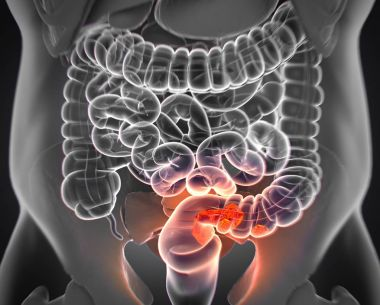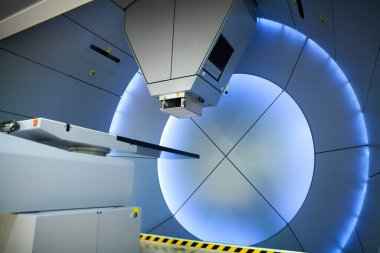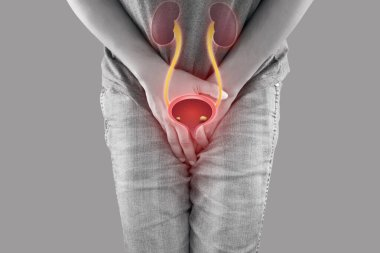- Have any questions?
- +91 90084 82284
- info@drsridharpsoncologist.com
Proton Therapy for Rectal Cancer

6 Weeks of Chemo and Radiation for Throat Cancer
July 5, 2024
Basal Cell Carcinoma Untreated For 5 Years
July 25, 2024The rectum is the lower part of the large intestine, where the body stores feces. Rectal cancer occurs when the cells in the rectum start growing uncontrollably. It is a form of colorectal cancer, the second leading cause of cancer-related fatalities worldwide.
In 2020 alone, over 1.9 million new cases were reported, leading to more than 930,000 deaths. Colorectal cancer predominantly affects individuals aged 50 and older. Fortunately, advanced treatments like proton therapy for colorectal cancer and its forms have provided hope to many.
Dr. Sridhar PS, a sought-after cancer doctor for Cyberknife Treatment in India, explains:
“Treating rectal cancer is challenging due to its proximity to critical pelvic structures. Proton therapy is a type of radiation treatment, which uses protons instead of X-rays to treat cancer. The protons have a unique physical property known as the Bragg peak. It allows the radiation dose to precisely target the tumor’s shape, depth, and size. This precision is crucial in treating rectal cancer, given its minimally invasive and highly targeted approach.”
Understanding proton therapy for rectal cancer is essential to making informed decisions. Let’s delve into the procedure where every step holds promise and precision.
Proton Therapy for Rectal Cancer – Procedure

The procedure for proton therapy in rectal cancer treatment involves several critical steps:
Consultation and Evaluation
The doctor discusses the diagnosis and assesses the patient’s suitability for proton therapy. This includes:
- Reviewing medical history
- Conducting physical examinations
- Analyzing MRI and CT scans
Treatment Planning
If eligible, the patient undergoes detailed imaging to map the tumor and surrounding structures. The doctor and his multidisciplinary team carefully plan the treatment. This personalized approach ensures that the dose of protons delivered to the tumor is optimized. It also minimizes exposure to healthy tissues surrounding the tumor.
Immobilization and Positioning
Before starting each session, the team fits the patient with a custom-made immobilization device. It helps the patient maintain the same position, ensuring the proton delivery accuracy.
Proton Therapy Sessions

Each treatment session lasts 15 to 30 minutes, depending on the case’s complexity. The patient lies comfortably on the treatment table. Meanwhile, the proton therapy machine delivers targeted beams to the tumor from different angles.
Monitoring and Support
Throughout the treatment course, the team closely monitors the patient’s progress. They conduct regular imaging scans to evaluate the tumor response and adjust treatment plans if necessary.
Follow-up Care
After completing proton therapy, ongoing follow-up care is essential to monitor for any signs of recurrence or side effects. The doctors ensure patients receive comprehensive post-treatment care to optimize their long-term outcomes.
Would you like to know more about proton therapy treatment? Take the next step towards healing by consulting with radiation specialists today.
Suitable Candidates for Proton Therapy
“Proton therapy may not be suitable for all,” says Dr. Sridhar PS, a renowned radiation oncologist in India. “We carefully evaluate each patient to determine their eligibility for this advanced therapy.”
The determining factors include:
Early-stage Rectal Cancer
Patients with early-stage rectal cancer, where the tumor is contained within the rectum lining, are ideal candidates for proton therapy. The treatment can target the tumor and spare surrounding healthy tissues, making it a viable option for localized cancer.
Tumors Near Critical Organs
Proton therapy is beneficial for tumors located near critical organs, such as the bladder or intestines. The precision of proton beams better protects these vital structures during radiation treatment. The minimized radiation exposure aims to preserve function and reduce side effects.
Patients with Prior Radiation Therapy
Patients who have previously undergone radiation therapy for rectal cancer and require re-treatment may benefit from proton therapy. Its ability to precisely target the tumor while sparing previously treated tissue can reduce the risk of complications.
Children and Young Adults
Due to their developing bodies, children and young adults are more sensitive to the effects of radiation. Proton therapy’s ability to minimize radiation exposure to healthy tissues makes it a preferred option for treating young patients.
Patients Seeking Minimally Invasive Treatment
Patients who prefer a minimally invasive treatment approach may find proton therapy appealing. It provides effective treatment with potentially fewer complications and quicker recovery.
Individualized Assessment
Medical experts determine each patient’s eligibility for proton therapy through a comprehensive evaluation. They carefully consider certain factors to ensure the best possible outcome. These include the tumor size, location, stage, overall health, and treatment goals.
Are you eligible for this advanced form of proton beam treatment? Please visit a qualified radiation oncologist in India for a comprehensive evaluation and guidance.
But what about potential side effects? Let’s delve deeper into what to expect with proton therapy for rectal cancer.
Proton Radiation Therapy Side Effects
Like any medical intervention, proton therapy may cause some side effects, including:
Fatigue

Fatigue is a common side effect experienced by patients undergoing proton therapy. This tiredness may vary in intensity and usually improves after treatment ends. Patients are encouraged to have adequate rest and conserve energy during this time.
Skin Irritation
Proton therapy may cause mild skin irritation in the treatment area. It is similar to sunburn, manifesting as redness, itching, or skin dryness.
Gastrointestinal Symptoms
Some patients may experience temporary gastrointestinal symptoms during or after proton therapy. The symptoms include diarrhea, nausea, or abdominal discomfort. These symptoms typically resolve on their own or with supportive care.
Urinary Symptoms

Proton therapy for rectal cancer may affect the bladder if the lower abdomen is treated. Symptoms may include increased urine frequency or urgency and discomfort or burning during urination.
Sexual Dysfunction
Proton therapy may impact sexual function, particularly in male patients, such as erectile dysfunction or changes in libido.
Bowel Changes
Proton therapy can cause bowel changes during treatment or persist afterward. These include diarrhea, constipation, or increased frequency of bowel movements.
Long-term Effects
Most side effects are temporary and resolve after treatment. Some patients may experience long-term effects like:
- Bowel or bladder irritation
- Fibrosis (thickening of tissues)
- Secondary malignancies
The risk of long-term side effects is generally lower with proton therapy compared to traditional radiation therapy.
Proton Therapy for Rectal Cancer – Potential risks
Proton therapy for rectal cancer is a highly effective treatment option with fewer risks compared to traditional radiation therapy. However, there are some potential proton therapy risks, including:
Damage to Nearby Organs
Proton therapy is precise. However, there is a small risk of damage to nearby organs like the bladder or intestines due to the tumor’s proximity to these structures.
Skin Changes
Long-term skin changes can occur at the radiation site. These include fibrosis or changes in pigmentation.
Rare Complications
In rare cases, patients may experience more severe complications, such as radiation-induced secondary cancers. However, the risk of these complications is significantly lower compared to traditional radiation therapy.
Are you curious about minimizing risks and optimizing treatment outcomes? Please reach out to Dr. Sridhar PS, a reputable radiation oncologist in India.
Success Rate of Proton Therapy for Rectal Cancer
The success rate of proton therapy in treating rectal cancer is promising, particularly in early-stage and localized tumors. A recent study focusing on local recurrence found impressive 3-year local control rates of 80.2%, with:
- Progression-free survival at 12.1%
- Overall survival at 71.3%
The median survival time was 67.1 months, with no severe acute or late adverse events reported.
Ongoing research and clinical trials continue to evaluate the long-term benefits of proton therapy for cancers of the brain, cervix, spine, rectum etc. The aim is to establish more refined treatment strategies to improve success rates and patient outcomes.
Conclusion
Proton therapy represents a significant advancement in the treatment of rectal cancer. It offers a more targeted approach with the potential for fewer side effects. As technology continues to advance, proton therapy holds the potential to become increasingly accessible for rectal cancer patients. With more data supporting its efficacy, it promises enhanced survival rates and improved quality of life.
Are you or a loved one considering proton therapy for rectal cancer? Please discuss the associated benefits and risks with your oncology team. They can help determine the right choice based on your specific condition and health goals.
Your journey to better health begins with informed decisions and expert guidance.
FAQs
What cancers are best treated with proton therapy?
Proton therapy is most effective for cancers located in sensitive areas where precision is critical. They include cancers of the brain, spine, and prostate cancers
For what stage of cancer is proton therapy the most useful?
Proton therapy is particularly beneficial in the early stages of cancer, where the tumor is localized and has not spread extensively.
What is the latest cure for rectal cancer?
The latest treatments for rectal cancer include:
- Targeted therapies
- Immunotherapies
- Advanced surgical techniques
Doctors often combine them with traditional treatments like chemotherapy and radiation.
Can you live ten years with stage 4 colon cancer?
Survival rates for stage 4 colon cancer vary based on factors like:
- The extent of disease spread
- Treatment effectiveness
Advances in treatment have improved long-term survival possibilities.
Reference Links:
https://www.texascenterforprotontherapy.com/cancers-treated/gastrointestinal/colon-cancer
